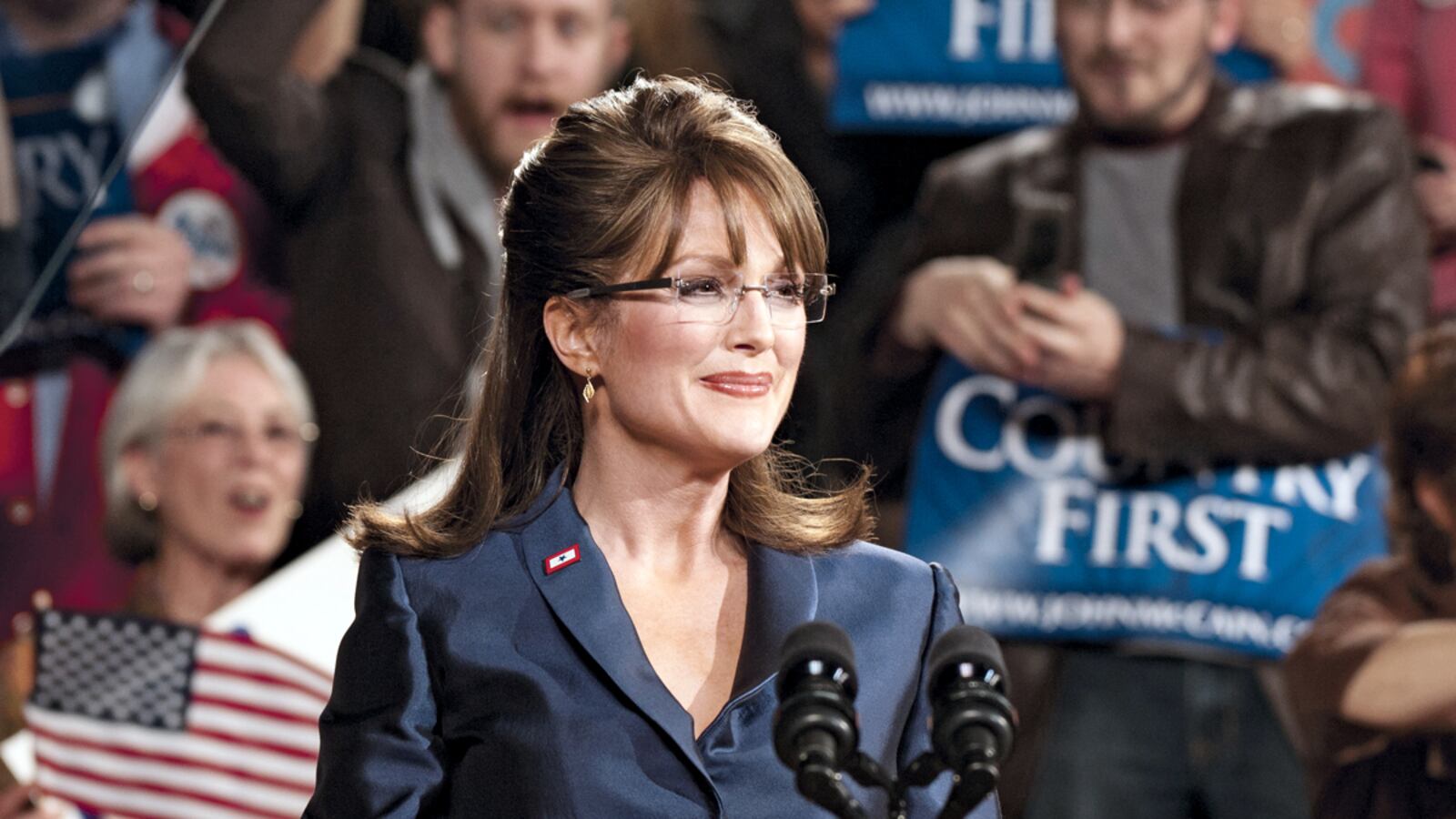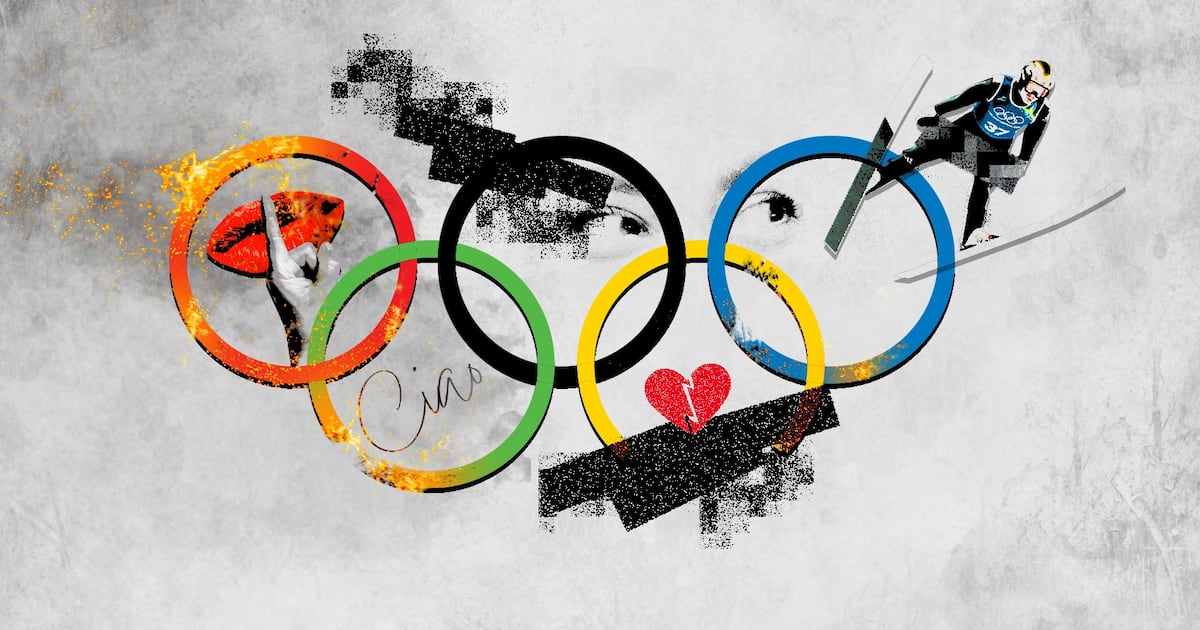Game Change is many things: a powerful recreation of the craziest vice-presidential campaign in history, a close-up look at nasty political infighting, a portrait of a woman on the verge of a breakdown.
But does it capture what actually happened with Sarah Palin in 2008?
To be sure, the movie is based on the book by Mark Halperin and John Heilemann, and includes a number of well-documented scenes of Palin being uninformed, difficult and petulant. The HBO filmmakers also say they interviewed numerous McCain staffers, notably Steve Schmidt (played by Woody Harrelson) and Nicolle Wallace (Sarah Paulson).
But that is part of the problem.
The former Alaska governor and her camp would not cooperate with the movie, essentially leaving the filmmakers with an account by one faction—strategists who were driven crazy by their VP candidate and blame her for the eventual implosion. Palin, who is depicted by Julianne Moore as gradually melting down, may see it very differently.
The Schmidt/Wallace version of events may be right, but there are scenes where they lecture her and she looks like a ninny—which is undoubtedly how they remember things. Yes, Game Change also shows Palin in touching scenes with her family and connecting with voters on rope lines, but by and large it’s the portrait of a head case.
Now my viewing of the film may be different than the average moviegoer’s, because I know many of those portrayed in the movie, from McCain on down. I dealt with Schmidt and Wallace regularly during the campaign. One scene that jumped out at me took place at the Republican convention, when a mob of reporters is shouting questions at Schmidt about, among other things, rumors that Trig was not Palin’s baby.
It didn't quite happen that way. I remember that vividly, because I was on the phone with Schmidt, who passionately argued that the media were putting Palin under siege with unsubstantiated garbage.
I asked director Jay Roach and screenwriter Danny Strong about the film’s accuracy, in an interview airing Sunday at 11 a.m. eastern on CNN’s Reliable Sources. They acknowledged that the Schmidt mob scene was a compilation of questions he’d been asked at different times. But they insisted they had done everything possible to double- and triple-check what is in the movie, and also relied on Palin’s book, Going Rogue.
At the Washington premiere on Thursday night, I asked Julianne Moore what was hardest to capture about Palin. “When you’re dealing with a living person, the parameters are pretty strict,” she told me. After working on nailing the voice and mannerisms, “you turn your attention to matching them emotionally. The hardest thing to do is to capture that person’s inner life.” (Moore, who worked on Walter Mondale’s 1984 campaign as a college student, was left wondering “why it is we’re so attracted to people who are incredibly good-looking and charismatic in our national leaders.”)
Outside the event at the Newseum, SarahPAC volunteers were handing out a "Showbill" that called the fil a "false narrative...A movie based on 40 pages from an unsources book." The polarization that surrounded the campaign itself has been transferred to the Hollywood version.
Let’s face it: no dramatization involving real people and real events is going to be 100 percent accurate, and some dialogue will inevitably be embellished. Game Change is a well-acted, well-paced movie that captures the bizarre world of campaigns and how they deal with the media (Charlie Gibson and Katie Couric appear in their famous Palin interviews, with Moore inserted into the footage). Given the power of cinema, the film is likely to define Sarah Palin in many people’s minds, whether the portrayal is picture-perfect or not.






